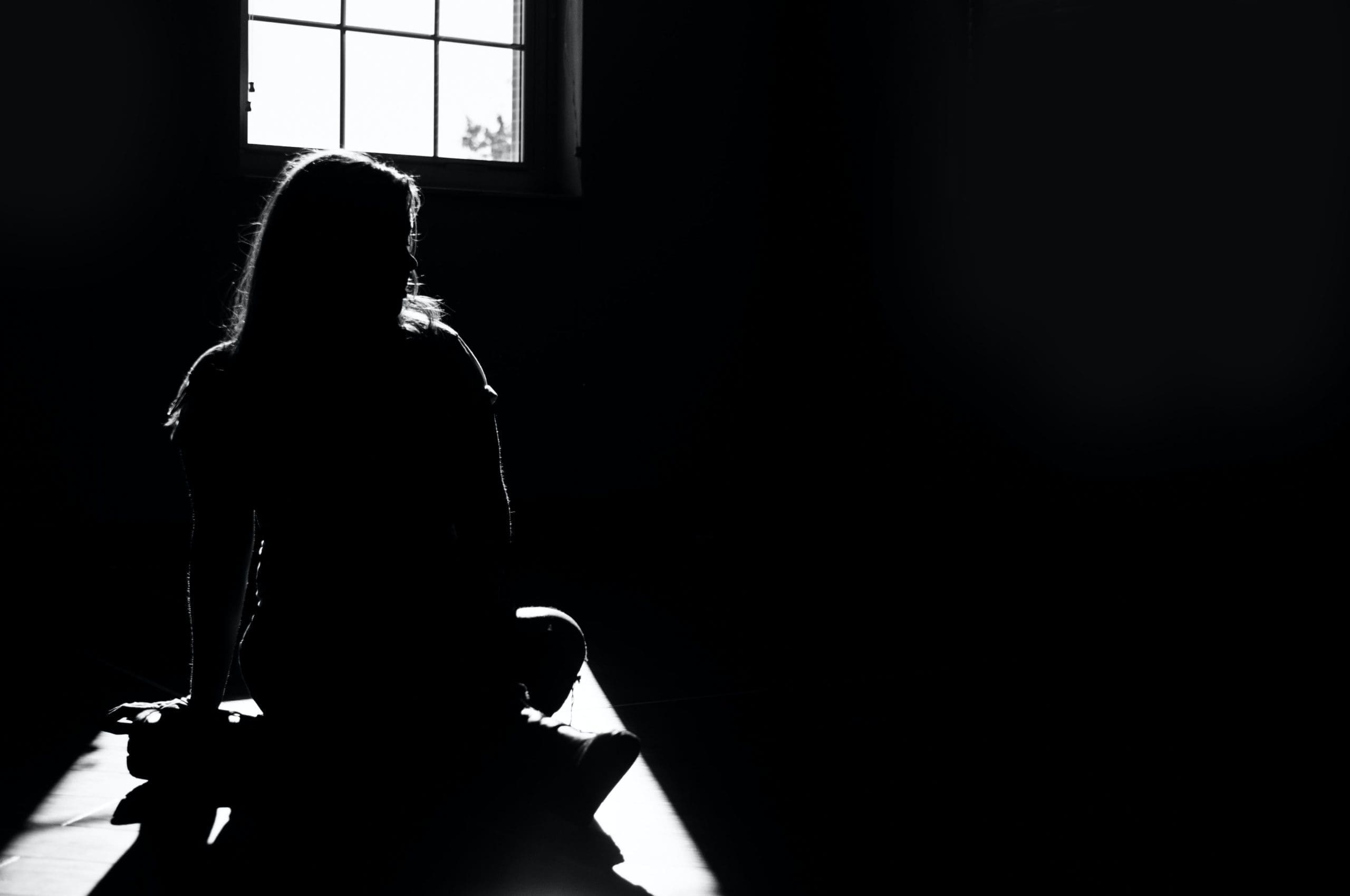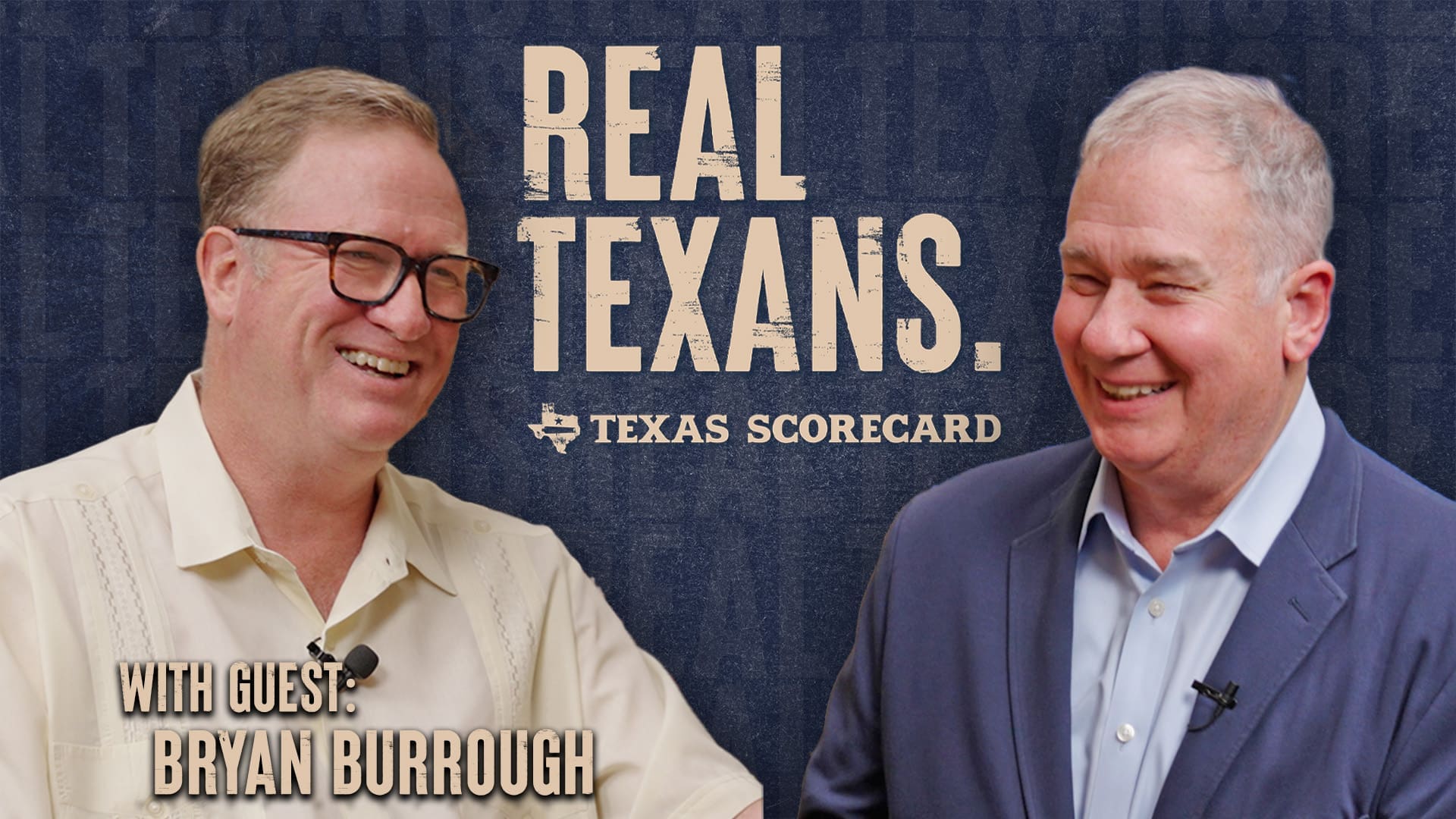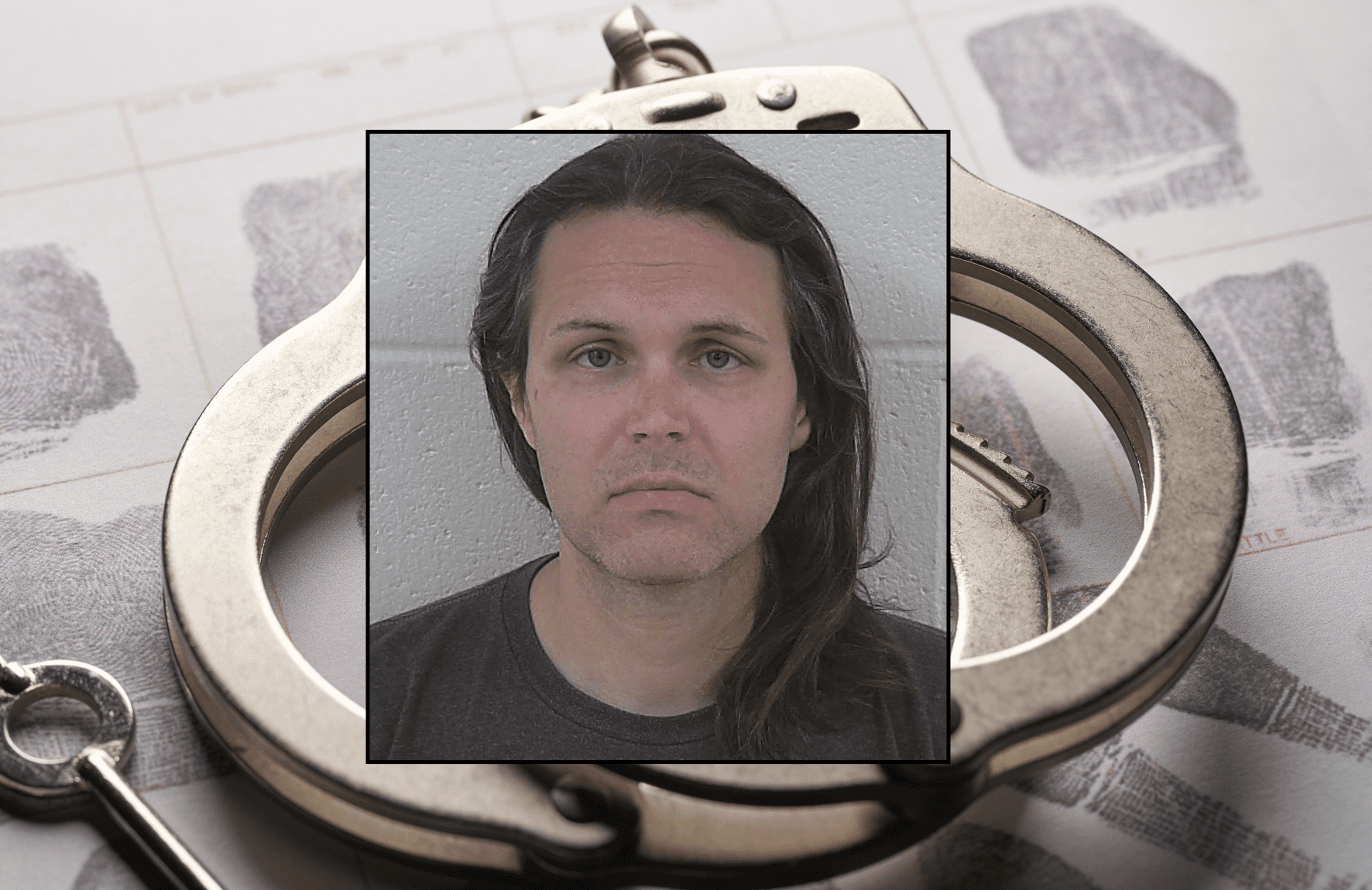Sex slavery is plaguing the Lone Star State.
The sex trade has a long and storied history in this state. Back in 1973, Texans were horrified when investigative reporter Marvin Zindler informed them that public servants were not enforcing the law against two brothels operating here.
Zindler’s work led to the shutting down of both immoral establishments. Now, 50 years later, sex slavery in Texas seems worse than ever.
Dark History
In July 1973, Marvin Zindler of ABC 13 Houston burst onto Texans’ screens with a story that would shake the state’s entire political structure, reaching all the way to then-Gov. Dolph Briscoe (D). In a 2003 recap of this story, aired on ABC 13 Houston, Zindler told Texans that “for 129 years in flagrant violation of Texas law,” two brothels were running in broad daylight unhindered. One was in La Grange, roughly 65 miles east of Austin. Zindler’s reporting on this brothel—dubbed the Chicken Ranch—became the story that defined his career.
In 1973, Texas Monthly wrote about the Chicken Ranch and Zindler. They reported that in the early 1900s, then-Sheriff August Loessin and the Chicken Ranch’s owner, “Miss Jessie,” had struck an agreement that allowed the prostitution institution to operate untouched. Later, when Sheriff Loessin’s brother succeeded him, the Chicken Ranch became a spy network of sorts for law enforcement. If clients who came to the Ranch confessed to crimes, or discussed anything potentially incriminating with a lady whom they had paid for sex, the Ranch would inform the law.
State law against brothels remained unenforced, the Chicken Ranch operated without interference, and the women there continued to be devalued. The attitudes of public servants towards the matter may be best represented by the Texas Monthly’s report that as far back as the 1940s, state lawmakers would mention the Chicken Ranch “in light-hearted floor debate.”
This might have continued had it not been for Zindler. He exposed to the culture at large that while their state had a good moral law, their public servants weren’t enforcing it. “It’s illegal to operate a house of prostitution in Texas, and past history shows they cannot function without someone in authority protecting them,” he said.
In his 1973 report, Zindler said he’d received an “anonymous complaint” about the La Grange Chicken Ranch and a brothel in Sealy, Texas (roughly 55 miles east); a 1980 follow-up video, also on ABC 13, included Zindler saying this claim was backed up by reports from the Texas Department of Public Safety. On ABC 13 Houston’s YouTube Channel, Zindler said he and his colleague got involved “only after a couple of frustrated lawmen found their bosses in Austin wouldn’t pay any attention to their suspicions that there were possible links to organized crime and payoffs involved.” At that point, Zindler’s team went undercover at the Chicken Ranch and performed stakeouts, uncovering the seedy operation.
Zindler also interviewed T. J. Flournoy, then-Sheriff of Fayette County, where the Chicken Ranch was located. Zindler asked whether the Texas Rangers asked Flournoy to shut down the brothel and whether or not he did for a while. Flournoy replied that he talked with Col. Wilson Spier, who was the head of DPS at the time. “Colonel told me it was just before an election, and he told me to tone it down awhile, let them take a little vacation. So, I did,” Flournoy said.
In another recording of the interview, Flournoy called the state a “— —– liar” over allegations that money from the Chicken Ranch was going into organized crime. “I know —- well there’s no organized crime connected,” he claimed.
Rather than being obsessed with shutting down this sex slave trade, Flournoy seemed more upset that someone dared to expose the matter. ABC 13 published an audio recording, also available on YouTube, where it sounded like Flournoy was assaulting Zindler, and a witness alleged Flournoy had indeed assaulted the reporter. In the Letterman interview, Zindler said the lawman “broke some of my ribs, which they eventually paid for.” A settlement was later agreed to.
Surprisingly, in his 2003 recap of the story, Zindler called Flournoy “a good lawman” who didn’t think there was anything wrong with letting the brothel operate.
Zindler went on to confront both Gov. Briscoe and state Attorney General John Hills. This eventually led to the Chicken Ranch and the brothel in Sealy being shut down.

Marvin Zindler (left) confronted Gov. Dolph Briscoe (right) about state law against brothels not being enforced.
This became the story that defined Zindler. It also became the basis for a 1982 movie musical starring Burt Reynolds and Dolly Parton: “The Best Little Whorehouse In Texas.” When adjusted for inflation (as of May 2023), the movie grossed more than $219 million.
Critics ask why bother taking such action, so long as those selling themselves for sex are consenting adults? Selene Rodriguez, assistant director of federal affairs with the Texas Public Policy Foundation, addressed this question. She noted that “most of the time” those who sell themselves like this have substance abuse or mental health issues. “They’re trying to feed an addiction, or they really don’t know any better because they have no mental health support, no housing, no income,” she told Texas Scorecard. “Those are the two driving factors to that, if you want to call it consent. I still wouldn’t even call it consent.”
Fast forward to today in Texas, a story that arguably started with Zindler continues on. The horrors are worse.
Present Day
Texans are horrified by the targeting of their children. From pornographic materials in schools and drag shows for kids to the gender mutilation industry, it is clear that our kids are prey in an increasingly predatory world. On top of this is another, and perhaps the most dangerous, predator of them all: the international sex slave trade.
In order to fight this, one must have absolute clarity about terms and what they mean. Usually, the term “sex trafficking” is used to describe sex slavery. But what does this term mean? “Sex trafficking is the exploitation of persons through force, fraud, or coercion,” Jaco Booyens explained. His Arlington-based organization, Jaco Booyens Ministries, actively fights against it. “It’s a completely different conversation than human trafficking, because human trafficking has three components, of which one is sex trafficking. Sex trafficking seems to always be prevalent in human trafficking.”
The Neal Davis Law Firm, located in Harris, Montgomery, and Fort Bend counties, provides another definition as well. “Sex trafficking is defined as ‘the range of activities involved when a trafficker uses force, fraud, or coercion to compel another person to engage in a commercial sex act or causes a child to engage in a commercial sex act,'” the firm’s website states. “Examples of where sex trafficking can occur include prostitution, escort agencies, strip clubs, massage spas, Internet chat rooms, pornography, mail order brides and sex tourism.”
Bottom line: This is a practice that denies the priceless value of every human life. Sickeningly, this slave trade is very lucrative.
Jaco is no stranger to this vampiric industry. It touched his own home.
Back when his family lived in South Africa, his sister, Ilonka, was taken into the sex slave trade at 12 years old. Jaco was 18 at the time. Ilonka was taken through the music industry. “She won a contest like American Idol, but way before American Idol. This was 1994,” Jaco told Texas Scorecard. “For the first year, the label befriended the family, and they delivered on every promise. Then her assigned record label executive is the one who first force raped Ilonka, and then ultimately trafficked [her].”

Jaco Booyens and his organization are among those fighting against the sex slave trade.
Rodriguez said it is not unusual for the young to be targeted. According to her the average age of sex slavery victims is from 16 to 20 years old, particularly for females. “We cannot also forget that males are victims of sex trafficking as well. … I’ve noticed the male victims are even younger,” she told Texas Scorecard. “Unfortunately, it happens to toddlers. We’ve seen a lot of cases where it happens to 2, 3, [and] 4-year-olds.”
There are factors that might make a child “more susceptible” to such predators. Upbring.org outlined them: having a history of physical or sexual abuse, having immigrated illegally, having been in the child welfare system, or being considered not heterosexual.
In Ilonka’s case, she was rescued six year later by an off-duty police officer. But that wasn’t the end of the story. She ran away and had to be rescued again. “That happens often. Once they’re rescued, they run,” Jaco said of sex slavery victims. “Then a very long journey started of Ilonka fighting for her own life.”
Today, Ilonka is a happily married mother, a therapist, and a worship leader at her church. But Jaco warns that not all such victims have these happy endings. In fact, very few do. “She’s still to date, the best case of a victory that we’ve ever encountered,” he said. “The rehabilitation success rate of a victim-turned-survivor … for that survivor to be able to one day have a family, be married, trust men again … that success rate in [America] is 2.5 percent.”
Since his sister’s capture and restoration, Jaco has dedicated himself to the prevention of sex slavery and the restoration of its victims. He now lives in Texas, and founded Jaco Booyens Ministries out of Arlington, warring to end this slave trade.
“We should prevent this from happening, because restoring that life is very difficult,” he said.
Devaluing Life
Sadly, America, the land of the free, is also the land of sex slavery.
The Neal Davis Law Firm published a report on human and sex slavery and found that sex slavery makes up $99 billion of the nearly $150 billion profit generated by human trafficking worldwide. “The more accurate numbers would be $130 billion globally, and 30 percent of that, globally, is spent in the United States,” Jaco said. “The U.S. is the largest consumer of sexually explicit content and also the largest consumer of paid sex on the planet.”
But there are costs to the soul and society at large greater than any amount of money. “What happens to the human brain when sex is used as a weapon renders a victim defenseless,” Jaco told Texas Scorecard. “The trauma to the brain, the emotional trauma—and honestly, the spiritual crushing effect [on] self-worth, identity, the lack of value—is absolutely devastating.”
The devastation leads to the death of the person you once knew, who is then replaced by someone who just looks like the person you knew. “The person that left is never the person that comes back,” Jaco said. He explained that this type of death doesn’t happen when the victim is still in the clutches of their slavers. “When a victim is being victimized and being trafficked, they are in survival mode. They live to survive. Their whole being, their whole function is to make it another hour, make it another day,” he said. “The second they are rescued and the imminent threat is removed immediately, they are then left in solace to relive every act of abuse. They can’t stand it.”
It can also create a cycle of the victim continually hurting themselves or others.
“In the moment of sexual abuse, there’s a condition in the brain that happens, and there’s two decisions,” Jaco said. “The one abused either decides that this is love, which means it becomes their worth, or, ‘I hate this,’ and those who hate it normally become traffickers.” Or, he said, they could become “radical feminists,” while those who believe it is love get trapped in a lifelong victim cycle, dating abusers.
“You’d be stunned to know that most of the traffickers were abused as boys, and they made a decision: ‘If you did this to me, I’ll make society pay upfront,’” Jaco said. “Remember, hurt people hurt people. Abuse begets abuse. That doesn’t excuse it, but it is a vicious cycle.”
Not only is this soul-poisoning trade in hot demand, but it has been thriving in Texas for some time.
Source Documents
The documents Texas Scorecard reviewed throughout this investigation were obtained either through open sources or by records requests to government offices through the Texas Public Information Act.
Texas Human Trafficking by Ladd and Jones is available as of publication from the National Library of Medicine, National Center for Biotechnology Information.
The Texas Office of the Attorney General (OAG) published annual reports on the state of human trafficking in Texas, and statewide government and private efforts to crack down on the practice. Texas Scorecard reviewed the reports from 2019 and 2022.
Other open sources containing information about human trafficking trends in Texas and nationwide are the NCBI Texas Human Trafficking Report, a report on human trafficking in Texas by the Texas Advisory Committee, data from the National Human Trafficking Hotline, a report from the Polaris Project on the corporate secrecy protecting businesses that facilitate human trafficking, and an Anti-Trafficking Strategic Plan created by the City of Houston.
Texas Scorecard also received several spreadsheets containing grant data from the Office of the Texas Governor (OOG) in response to a public records request. The first spreadsheet notes the grants given to various cities and non-governmental organizations (NGOs) to fight human trafficking. Another spreadsheet details the grant amounts that correspond to the projects listed. Several other spreadsheets note the progress of various types of grants during their lifespan: 2020 Emergency Measures, 2022 Emergency Measures, 2022 Long-Term Measures.
This article contains highlights from these documents. Citizens wishing to conduct a deep dive should click the links above.
Texas Epidemic
“I thought slavery ended over 150 years ago,” lamented former Texas State Sen. Larry Taylor, according to a widely reported August 2019 account at Alvin Community College. Former Speaker of the Texas House Dennis Bonnen (R) gave an alarming statistic at this event: that at any given time in the state, there are 79,000 victims of youth and minor sex trafficking.
That only shows part of the picture.
Ladd and Jones wrote that in 2019, Texas had earned the dubious distinction of second place in reported cases of human trafficking in the nation, and that the most common type of trafficking in America was sex slavery.
Shockingly, Texas was one of the first states to criminalize human trafficking in 2003. But for the past decade or so, public servants have been losing this battle.
Pulling information from the National Human Trafficking Hotline, the Neal Davis Law Firm reported Texas was second only to California for the highest number of sex slavery cases in 2019. They also cited the United Nations Office on Drugs and Crime, which found Houston as the city with the most cases of human trafficking—mostly for sex slavery “or forced labor”—and Texas as second worst of all states in the union. The law firm asked how this could be. “One contributing factor is the Texas-Mexico border, a nearly 2,000-mile line that is the most frequently crossed international border in the world, with approximately 350 million documented crossings annually,” the report stated. “The U.S. Department of Health and Human Services estimates that 50,000 people from various countries are trafficked into Texas every year. And many other victims are U.S. citizens.”
But the problem is not just in Houston. The Daily Campus, a publication of Southern Methodist University, in December 2019 said that North Texas “is known to be a hub for sex trafficking” and that Dallas is second to Houston in the slave trade. The Daily Campus cited a report by The Urban Institute, which found that sex slavery in Dallas every year reaps $99 million in profits.
Since 2006, Interstate 10, which connects the Texas cities of El Paso, San Antonio, and Houston, has been identified as a main corridor for human trafficking, according to an August 2011 report by Texas Advisory Committee to the U.S. Commission on Civil Rights. El Paso and Houston had especially concerning rates of human trafficking. In fact, the Department of Justice deemed the threat so high that they categorized El Paso and Houston as two of the “most intense trafficking jurisdictions in the country.”

Photo by Cassidy Dickens (Unsplash)
In 2019, the National Human Trafficking Hotline reported 1,089 cases of human trafficking in Texas. A majority of those—815, to be precise—were identified as sex trafficking—or sex slavery. The remainder were either labor trafficking or a combination of sex and labor trafficking.
As bad as these numbers are, this vampiric industry could be far worse than what we know. “We’re dealing with a crime where 1 percent of the crime is reported. Sex trafficking victims do not self-report,” Jaco said. These victims often do not self-report because of the mental, emotional, physical, and spiritual trauma they experience. “Twenty-eight years of fighting this, with 15 rescues in the last three weeks, and I’ve never met a single victim that self-identified as a victim. Never. Not one time,” Jaco continued. Why? For two reasons: the predator has either convinced the victim that they’re complicit and this was their choice, or the predator has convinced the child that they have to participate in order to carry the burden of someone else. The latter was what happened to Jaco’s sister.
“The victims will be told, ‘We’re going to kill your family,’ and the predators will be very convincing because they will have real data,” Jaco said. “A child is even easier to defraud than an adult, because a child does not have real life experience; a child does not have the ability to differentiate good from evil intent. It’s a very, very difficult crime to fight for that reason. It’s not like people walk around saying, ‘Help me.’” He explained that when the crime is reported, it’s usually because law enforcement or the judicial process got involved.
In 2019, the data made the problem’s severity so clear that Texas’ public servants acted.
Laws and Funding

At the widely reported Alvin Community College event in August 2019, former Texas House Speaker Bonnen discussed several actions taken by state lawmakers in response to Texas’ alarming status as a major sex slavery hub. These include making ongoing human trafficking a “stackable offense,” meaning an individual found guilty for this act must serve each sentence for each conviction one after the other, rather than simultaneously. There’s also the augmentation of community supervision for those convicted of prostitution, and giving individuals access to court programs for those sold for sexual gratification.
For those who pay for sex, the consequences were steepened. First-time convicts would get a Class A misdemeanor, second-time offenders would be guilty of a felony, and a fourth-time offender would end up on the sex offender registry. These were all set in Senate Bill 20, which put into place recommendations from the Texas Human Trafficking Prevention Team. It was signed into law by Gov. Abbott on June 4, 2019, and went into effect on September 1 of that year.
“I think it’s the first time in Texas that we’ve said those who are going in and soliciting that prostitution … they have a legal problem,” Bonnen said at the time.
State lawmakers didn’t stop there. In August 2021, the criminal defense law firm of Granger and Mueller wrote that state lawmakers had now made buying sex a “state jail felony.” “This law makes Texas the first state in the union to make the buying (rather than selling) of sex a felony,” the firm stated. Consequences for a first offense range from 180 days to two years, as well as a maximum fine of $10,000. Consequences for a second offense would be a state prison sentence for two to ten years and a maximum fine of $10,000.
There were more widely reported actions discussed at the Alvin Community College event in 2019. More than $27 million of taxpayer monies flowed into the Texas Department of Public Safety for human and child sex trafficking investigative squads, regional human trafficking investigative squads, and anti-gang squads. $5.5 million was set aside for the Texas Alcoholic Beverage Commission’s anti-human trafficking unit, and $3.4 million for growing the human trafficking prevention division of the Texas Attorney General’s Office. The Texas Department of Licensing and Regulation was assigned $1.5 million to put together a human trafficking unit. Bonnen said its purpose would be to help increase inspections at high human trafficking risk locations. These were all part of the 2019 state budget (House Bill 1).
Finally, more than $56 million was allocated to tackle the state’s backlog of rape kits—investigative tools that collect evidence of rape from victims—in the hope such backlogs don’t happen again.
Altogether in the 2019 legislative session, multiple actions and more than $94 million of state taxpayer funds were directed toward anti-sex slavery or assault efforts.
Other public servants took action as well.
Programs and Training
Two primary state departments led the charge on combating trafficking in the Lone Star State; one is the Office of the Attorney General (OAG), and the other is the Office of the Governor (OOG). The OAG created the Human Trafficking Prevention Coordinating Council to oversee the Human Trafficking Prevention Task Force, which was first established in 2009 when Gov. Greg Abbott was Attorney General. The task force is composed of state agencies and departments, prosecutors, and nongovernmental organizations, all working together to combat human trafficking in the state.
According to the Task Force’s 2019 report, many of the actions they reported were positive. The Texas Alcoholic Beverage Commission conducted investigations that resulted in the cancellation of alcohol permits for several businesses involved in human trafficking, hindering their continued existence. This investigation also connected 31 victims with proper services. An example given of Texas Parks & Wildlife assisting anti-human trafficking efforts was Customs and Border Patrol’s arrests on the Padre Island National Seashore. A game warden was able to testify to the dangerous nature of human smuggling across the Port Mansfield Channel in South Texas, which resulted in the court approving federal smuggling charges in that case. They did this work despite not receiving any funding from the Legislature for anti-human trafficking activities.
The OOG on the other hand has a Child Sex Trafficking Team (CSTT), created by state lawmakers in 2015. It awards taxpayer-funded grants to cities and various non-governmental service providers to aid their abilities to fight the child sex slave trade and help its victims.
These are a number of the actions Texas’ public servants took in response to the state’s shocking status as a major hub for sex slavery. But, what has become of their efforts?
In Part 2, Texas Scorecard will examine how public servants’ actions in 2020 made sex slavery worse and funded a number of woke nonprofits in the name of fighting sex slavery.






